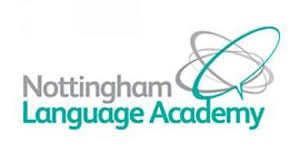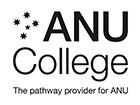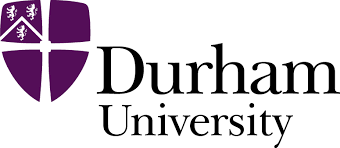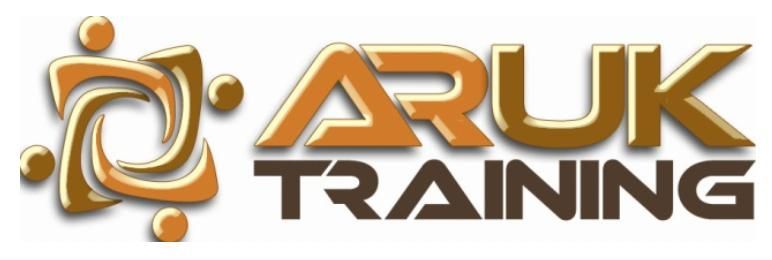
Claims and Counterclaims Preparation, Analysis, Assessment and Successful Settlement of Disputes (CMC Workshops 5, 6) – Certificate Program
Course ID: 2510207101347EGI
Course Dates : 20/10/25 Course Duration : 5 Studying Day/s Course Location: Dubai, UAE
Language: Bilingual
Course Category: Professional and CPD Training Programs
Course Subcategories: Operations and Process Excellence
Course Certified By: * Projacs Academy
* Professional Training and CPD Programs
Certification Will Be Issued From :
KSA
Course Fees: £2,940.22
Vat Not Included in the price. VAT may vary depending on the country where the course or workshop is held.
Click to Pay
Date has passed please contact us Sales@e-s-hub.com
Course Information
Introduction
The art of preparing, analyzing, assessing, and settling disputes is a cornerstone of effective conflict resolution in professional environments. Whether in corporate negotiations, legal proceedings, or project management, the ability to craft compelling claims and counterclaims while navigating complex disputes can determine the success of an organization. This course delves into the intricacies of dispute resolution, equipping participants with the tools and frameworks necessary to address conflicts strategically and ethically. The subject matter is particularly relevant in today’s globalized economy, where organizations face multifaceted challenges requiring nuanced problem-solving skills.
A key challenge in dispute resolution lies in the gap between theoretical knowledge and practical application. Many professionals are well-versed in legal or procedural guidelines but struggle to translate these principles into actionable strategies during high-stakes negotiations. For instance, a recent case study involving a multinational construction firm revealed that poorly prepared claims led to significant financial losses and strained client relationships. This highlights the pressing need for structured training programs that bridge this gap by offering hands-on insights and real-world applications. By addressing these deficiencies, this course empowers participants to navigate disputes with confidence and precision.
Mastering the content of this program yields substantial benefits for both individuals and organizations. For professionals, it enhances career prospects by fostering expertise in negotiation, risk mitigation, and strategic communication—skills that are highly sought after across industries. Organizations, on the other hand, stand to gain from improved operational efficiency, reduced litigation costs, and stronger stakeholder relationships. Drawing on established theories such as Fisher and Ury’s Getting to Yes and the Harvard Negotiation Project framework, the course integrates proven methodologies with contemporary best practices to deliver a comprehensive learning experience.
The relevance of dispute resolution extends beyond traditional legal contexts. Industries such as healthcare, technology, and finance increasingly rely on robust mechanisms to manage disagreements arising from contractual obligations, regulatory compliance, or intellectual property concerns. Consider the example of a fintech startup grappling with a breach-of-contract claim from a vendor. Effective preparation and analysis enabled the company to reach an amicable settlement without resorting to costly litigation. Such scenarios underscore the universal applicability of the course content, making it indispensable for professionals seeking to enhance their problem-solving capabilities.
Furthermore, the course aligns with emerging industry trends, including the growing emphasis on alternative dispute resolution (ADR) methods and digital transformation in legal processes. As organizations adopt virtual mediation platforms and AI-driven analytics to streamline dispute resolution, understanding the underlying principles becomes even more critical. Participants will explore how technological advancements intersect with traditional practices, enabling them to stay ahead of the curve in an evolving landscape.
Ultimately, this certificate program is designed not only to impart technical proficiency but also to cultivate a mindset geared toward collaboration and innovation. Through interactive workshops, case studies, and role-playing exercises, participants will develop the skills needed to transform adversarial situations into opportunities for mutual benefit. By investing in this training, professionals position themselves as invaluable assets to their organizations, capable of driving sustainable outcomes in even the most challenging circumstances.
Objectives
By attending this course, participants will be able to:
Analyze the fundamental principles of claims preparation and counterclaim formulation using established legal and contractual frameworks.
Evaluate the strengths and weaknesses of opposing arguments through systematic assessment techniques.
Design effective negotiation strategies tailored to specific dispute scenarios and stakeholder dynamics.
Implement alternative dispute resolution (ADR) methods, including mediation and arbitration, to achieve timely and cost-effective settlements.
Apply ethical considerations and compliance requirements when drafting and presenting claims.
Synthesize data and evidence to construct persuasive narratives that support successful dispute resolution.
Critique real-world case studies to identify lessons learned and transferable best practices.
Who Should Attend?
This course is ideal for:
Legal practitioners, contract managers, and procurement specialists seeking to enhance their dispute resolution capabilities.
Project managers and engineers involved in large-scale projects where claims and counterclaims frequently arise.
HR professionals tasked with resolving workplace disputes and grievances.
Consultants and advisors who assist clients in navigating complex negotiations or litigations.
These groups will find the course valuable due to its focus on practical tools and methodologies that directly address their day-to-day challenges. While prior exposure to dispute resolution concepts is beneficial, the course is structured to accommodate intermediate learners, ensuring accessibility without compromising depth.
Training Method
• Pre-assessment
• Live group instruction
• Use of real-world examples, case studies and exercises
• Interactive participation and discussion
• Power point presentation, LCD and flip chart
• Group activities and tests
• Each participant receives a 7” Tablet containing a copy of the presentation, slides and handouts
• Post-assessment
Program Support
This program is supported by:
* Interactive discussions
* Role-play
* Case studies and highlight the techniques available to the participants.
Daily Agenda
The course agenda will be as follows:
• Technical Session 08.30-10.00 am
• Coffee Break 10.00-10.15 am
• Technical Session 10.15-12.15 noon
• Coffee Break 12.15-12.45 pm
• Technical Session 12.45-02.30 pm
• Course Ends 02.30 pm
Course Outlines
Foundations of Claims and Counterclaims
Principles of Contract Law and Their Relevance to Dispute Resolution
Key Elements of a Well-Prepared Claim Document
Understanding Counterclaims: Legal Frameworks and Strategic Importance
Identifying Common Pitfalls in Claims Preparation
Day 2:
Analytical Techniques and Evidence Gathering
Methods for Evaluating the Validity of Claims and Counterclaims
Data Collection and Documentation Best Practices
Leveraging Expert Testimony and Third-Party Reports
Tools for Assessing Risk and Liability
Day 3:
Negotiation Strategies and Tactics
Building Persuasive Arguments Through Structured Narratives
Role of Emotional Intelligence in Conflict Resolution
Crafting Win-Win Solutions Using Interest-Based Negotiation Models
Overcoming Obstacles in High-Stakes Negotiations
Day 4:
Alternative Dispute Resolution (ADR) Mechanisms
Introduction to Mediation, Arbitration, and Conciliation Processes
Selecting the Right ADR Method Based on Case Characteristics
Drafting Settlement Agreements That Minimize Future Conflicts
Ethical Considerations in ADR Practices
Day 5:
Practical Applications and Industry Updates
Real-World Case Studies: Lessons Learned and Best Practices
Navigating Digital Transformation in Dispute Resolution
Compliance Requirements Across Jurisdictions
Final Workshop: Simulated Dispute Resolution Exercise



















































